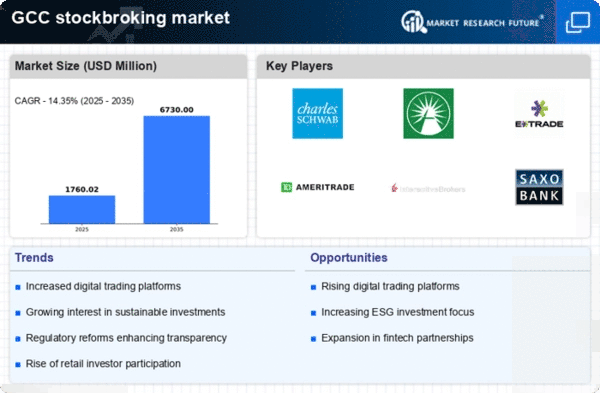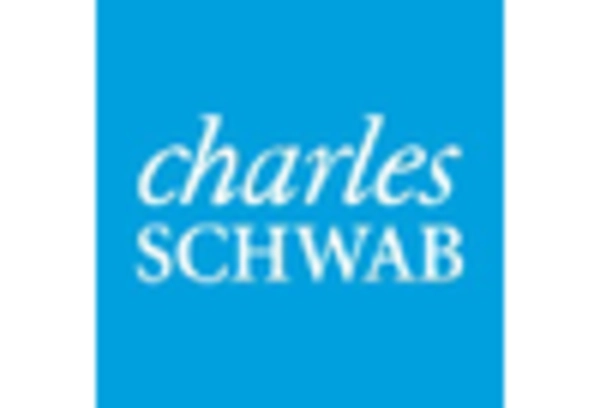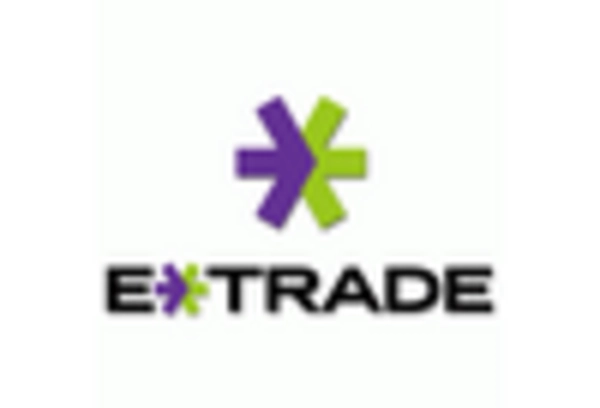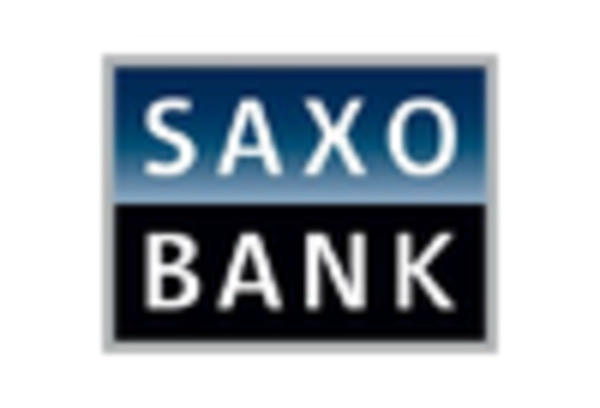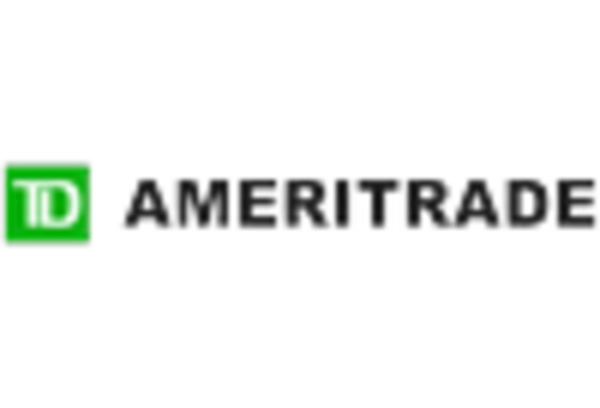Evolving Regulatory Frameworks
The stockbroking market is currently navigating an evolving regulatory landscape in the GCC. Recent reforms aimed at enhancing market integrity and investor protection are reshaping the operational framework for stockbrokers. For instance, the introduction of new compliance requirements has led to a 15% increase in operational costs for firms, compelling them to adapt their business models. These regulatory changes are designed to foster greater transparency and accountability, which may ultimately enhance investor confidence in the stockbroking market. As firms align their practices with these regulations, the market is likely to witness a shift towards more ethical and sustainable trading practices, potentially attracting a broader range of investors.
Expansion of Online Trading Services
The stockbroking market is experiencing a significant expansion of online trading services, driven by the increasing demand for convenience and accessibility among investors. The proliferation of internet connectivity and mobile devices in the GCC has facilitated this trend, with online trading volumes reportedly increasing by 50% over the past year. This surge indicates a shift in investor behavior, as more individuals opt for self-directed trading platforms that offer lower fees and greater control over their investments. As online trading becomes more mainstream, traditional brokerage firms are compelled to adapt their service offerings to remain competitive in the stockbroking market. This evolution is likely to reshape the competitive landscape, fostering innovation and improved customer experiences.
Increased Financial Literacy Initiatives
The stockbroking market is benefiting from a concerted effort to enhance financial literacy across the GCC. Governments and financial institutions are launching educational programs aimed at empowering individuals with the knowledge necessary to make informed investment decisions. Recent data suggests that financial literacy rates in the region have improved by approximately 25% over the last two years. This increase is likely to result in a more informed investor base, which could lead to higher participation rates in the stockbroking market. As individuals become more knowledgeable about investment strategies and market dynamics, the demand for stockbroking services is expected to rise, fostering a more robust and dynamic market environment.
Growing Interest in Sustainable Investments
The stockbroking market is witnessing a growing interest in sustainable investments, reflecting a broader global trend towards environmental, social, and governance (ESG) criteria. In the GCC, there has been a marked increase in the number of investment funds focusing on sustainable projects, with assets under management in this sector rising by 40% in the past year. This shift indicates a changing mindset among investors who are increasingly prioritizing ethical considerations alongside financial returns. As more stockbrokers begin to offer ESG-compliant investment options, the stockbroking market is likely to attract a new demographic of socially conscious investors, thereby expanding its reach and influence.
Technological Advancements in Trading Platforms
The stockbroking market is experiencing a notable shift due to rapid technological advancements in trading platforms. Enhanced algorithms and artificial intelligence are streamlining trading processes, allowing for faster execution and improved decision-making. In the GCC, the integration of mobile trading applications has surged, with a reported increase of 30% in user engagement over the past year. This trend indicates a growing preference for accessible and user-friendly platforms among investors. Furthermore, the adoption of blockchain technology is anticipated to enhance transparency and security in transactions, potentially attracting more participants to the stockbroking market. As technology continues to evolve, firms that invest in innovative solutions are likely to gain a competitive edge, thereby shaping the future landscape of the stockbroking market in the region.


